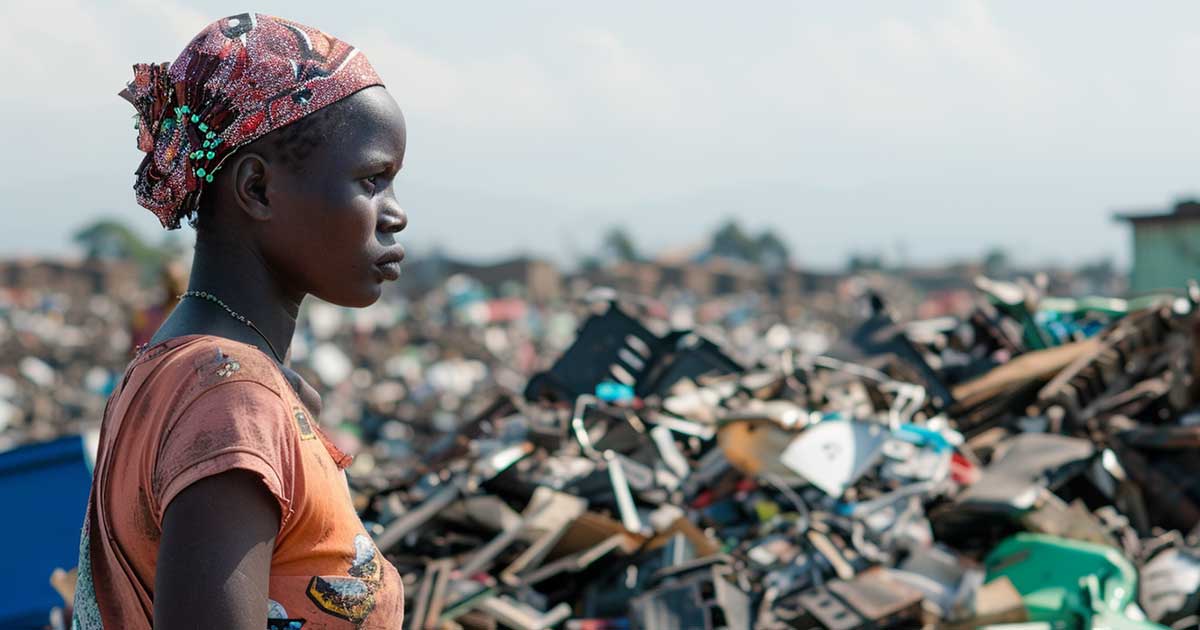Electronic waste, commonly known as e-waste, has become a global concern in our increasingly digital world. With the rapid evolution of technology, our appetite for the latest gadgets and devices is insatiable. This leads to a staggering amount of electronic waste being generated each year. In this article, we'll explore the reasons why we should care about e-waste, its environmental and health impacts, and what individuals, industries, and governments can do to address this pressing issue.
The Escalating E-Waste Crisis
The proliferation of electronic devices is undeniable. From smartphones and laptops to televisions and refrigerators, electronics have become an integral part of our daily lives. As technology evolves, so does our desire for the latest and greatest devices. Consequently, older electronics are discarded at an alarming rate, contributing to the global e-waste crisis.
Environmental Consequences
E-waste poses significant environmental threats. Many electronic devices contain hazardous materials, including lead, mercury, cadmium, and brominated flame retardants. When improperly disposed of in landfills or incinerated, these toxic substances can leach into the soil and water, leading to contamination, harming ecosystems, and endangering human health.
Moreover, the production of electronics consumes vast amounts of resources, such as rare metals and minerals. This extraction process contributes to deforestation, habitat destruction, and greenhouse gas emissions. The carbon footprint of producing electronic devices is substantial, and when coupled with their improper disposal, it exacerbates climate change.
Health Risks

The improper handling and disposal of e-waste have severe health implications. Workers involved in recycling and processing e-waste in developing countries often labor in unsafe conditions. They are exposed to toxic fumes, harmful chemicals, and heavy metals, which can lead to a range of health issues, including respiratory problems, skin disorders, and neurological damage. These issues extend to the local communities where e-waste recycling takes place.
Additionally, the improper disposal of e-waste in landfills and incineration facilities releases harmful pollutants into the air and water, further jeopardizing public health. As e-waste piles up globally, the potential health risks continue to grow.
Ethical and Economic Aspects of E-Waste
Beyond the environmental and health aspects, there are ethical and economic dimensions to the e-waste problem.
Ethical Concerns
Many discarded electronic devices, especially those in developed countries, are still functional. Disposing of perfectly usable electronics while others lack access to such technology raises ethical questions. The cycle of constant consumption and disposal perpetuates economic disparities and exacerbates electronic waste generation.
Resource Recovery

E-waste contains valuable resources, including precious metals like gold, silver, and copper. Proper recycling and recovery of these materials not only reduce the environmental impact of mining but also contribute to a circular economy. In a circular economy, resources are reused and recycled, minimizing waste and reducing the need for resource extraction.
The Role of Legislation and Regulation
Addressing the e-waste problem requires a combination of individual responsibility, industry cooperation, and government regulation. Several countries have implemented laws and regulations to manage e-waste more effectively.
Extended Producer Responsibility (EPR)
Extended Producer Responsibility is a concept that holds manufacturers accountable for the entire life cycle of their products, including their disposal. EPR programs require manufacturers to take responsibility for recycling or safely disposing of their products at the end of their life. Many countries have implemented EPR laws, encouraging manufacturers to design products with recyclability and sustainability in mind.
Bans on Hazardous Substances

Some countries have banned the use of specific hazardous materials in electronic devices, reducing the potential for harm when these devices are disposed of. Regulations like the Restriction of Hazardous Substances (RoHS) Directive in the European Union restrict the use of certain toxic substances in electronics.
Collection and Recycling Programs

Governments, in collaboration with the private sector, have set up collection and recycling programs to ensure the proper disposal and recycling of e-waste. These programs offer convenient drop-off locations for old electronics and ensure that they are processed in an environmentally responsible manner.
What You Can Do
As an individual, you can make a significant difference in addressing the e-waste problem.
-
Reduce and Reuse: Extend the life of your electronic devices by maintaining and repairing them. Only upgrade when necessary.
-
Recycle Responsibly: When it's time to dispose of electronic devices, use designated e-waste recycling programs or facilities. Ensure that your e-waste is handled in an environmentally friendly way.
-
Support Sustainable Brands: Choose electronics from manufacturers committed to sustainability and extended producer responsibility. Discover the Sustainable Tomorrow Bamboo Electric Toothbrush.
-
Advocate for Change: Raise awareness about e-waste and advocate for stronger government regulations and corporate responsibility in managing electronic waste.
Conclusion
The e-waste crisis is a complex issue with far-reaching consequences for the environment, public health, and society as a whole. However, with concerted efforts at the individual, corporate, and governmental levels, we can mitigate the impact of e-waste. By promoting responsible consumption, recycling, and supporting sustainable practices, we can contribute to a more sustainable and environmentally friendly future while addressing the challenges posed by electronic waste. It's time to take e-waste seriously and work together to find lasting solutions to this pressing problem.


Share:
The oral care industry is facing a pressing sustainability challenge
Transform Your Daily Dental Routine for Better Mental Health